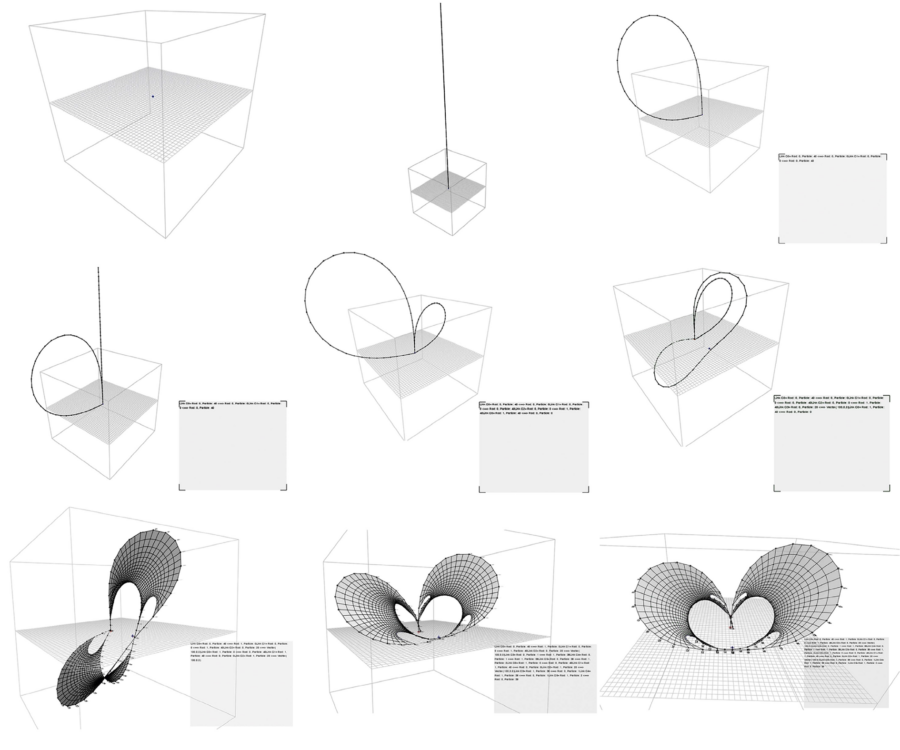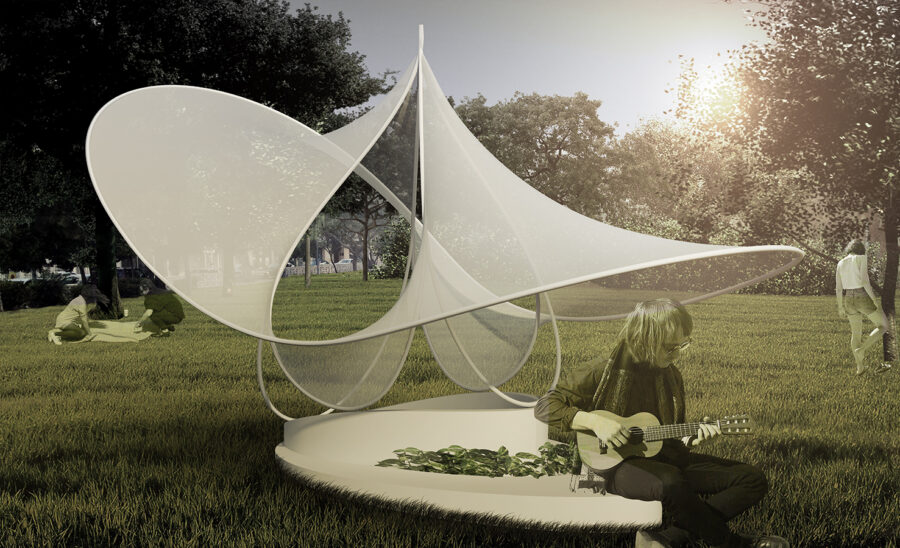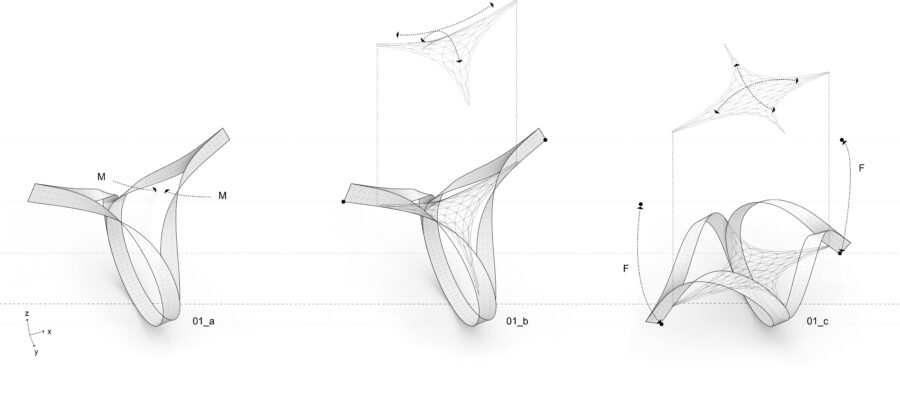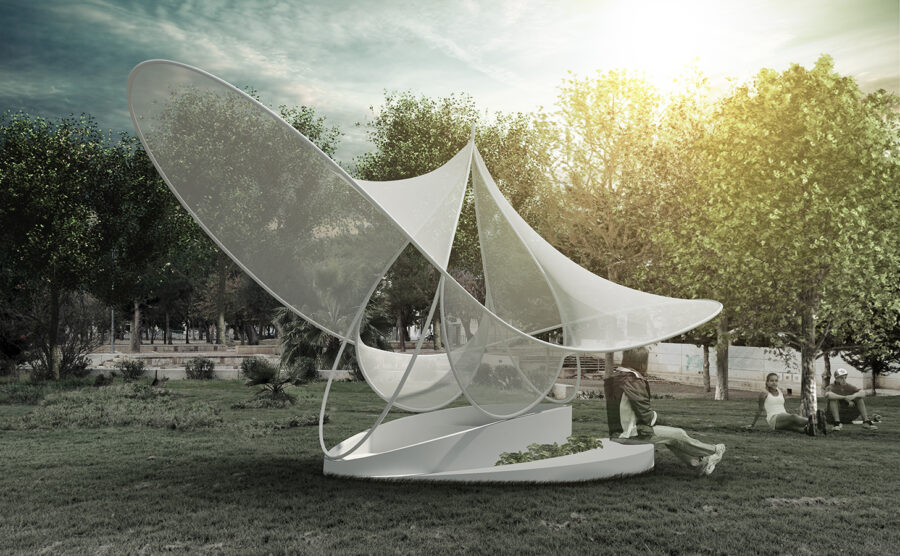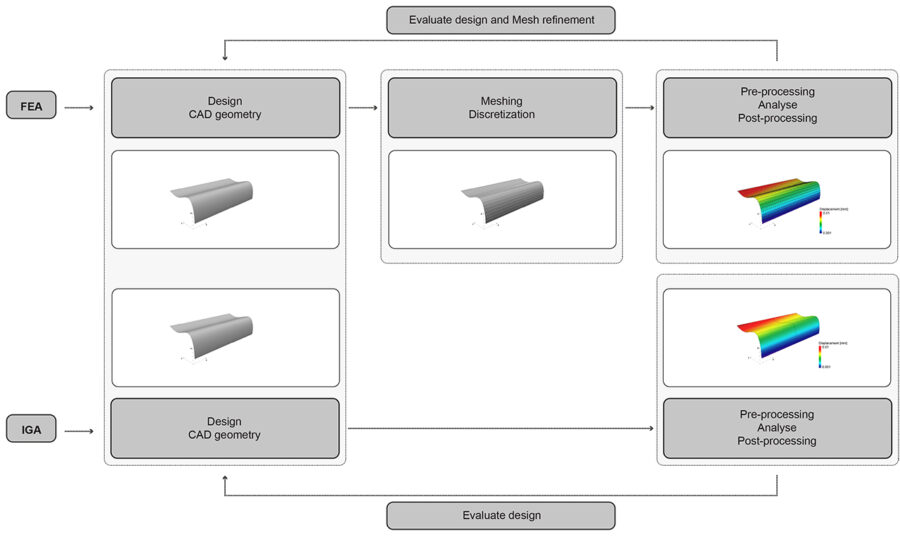ESR1
CategoryA COMPARATIVE OVERVIEW OF GENERATIVE APPROACHES FOR COMPUTATIONAL FORM-FINDING OF BENDING-ACTIVE TENSILE STRUCTURES
Bending-active tensile hybrid structures refers to the coupling of bending- and tension-form-active components within a unique and stiffer construct. The variety of possible shapes applicable to the design of these structures demands new ideas around real-time physics-based simulations for the development of more flexible and interactive design spaces.
CONCEPTUAL FRAMEWORK FOR ANALYZING AND DESIGNING BENDING-ACTIVE TENSILE HYBRID STRUCTURES
This paper investigates and demonstrates the structural and architectural potentials of torsion in plate elements for bending-active tensile structures and evaluates the limits to which torsion can be employed in plate-hybrid structures. Bending?active tensile structures are a novel typology of lightweight structures utilizing integrated bending-active elements as support for a membrane structure.
TORSION AS A DESIGN DRIVER IN PLATE-BENDING-ACTIVE TENSILE STRUCTURES
This paper investigates and demonstrates the structural and architectural potentials of torsion in plate elements for bending-active tensile structures and evaluates the limits to which torsion can be employed in plate-hybrid structures. Bending?active tensile structures are a novel typology of lightweight structures utilizing integrated bending-active elements as support for a membrane structure.
Hierarchical multi-resolution simulation for bending-active tensile hybrid structures based on isogeometric analysis
Integration between design and analysis is becoming more significant, and requires an easy back and forward transfer between design and analysis geometry. Isogeometric analysis (IGA) is filling the gap between structural analysis (FEA) and design software (CAD).
Concept of Isogeometric Analysis – ESR1
Isogeometric Analysis (IGA) is an emerging technology driven by the present gap between the simulation of structural analysis (FEA) and design software (CAD). IGA is a promising new topic in computational mechanics and was first introduced in 2005 by Thomas J. R. Hughes.
ESR01- MULTIPLE STATES OF EQUILIBRIUM FOR BENDING-ACTIVE (TENSILE) STRUCTURES
Bending-active tensile (BAT) structures introduce a recently new integrative solution into the field of lightweight architecture. This combination of bending-active elements with a tensile element generates challenges for designers due to the complexity in the necessary integrated form-finding and analysis simulations combined with the reciprocal equilibrium, as well as the high level of detail required in fabrication and erection of these form-active structures. These BAT structures remain a challenge, but current developments in CAD and CAE allow designers to engage in that complexity and generate new architectural and structural possibilities in simulating and generating geometry. The research aims to develop an integrated process interface from design to analysis for BAT structures and to explore its potential for architectural design culture.

